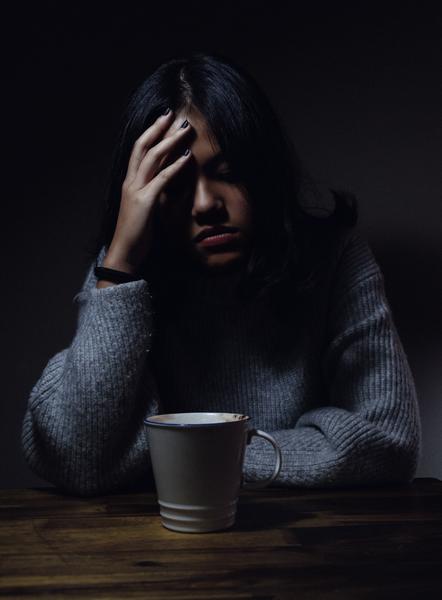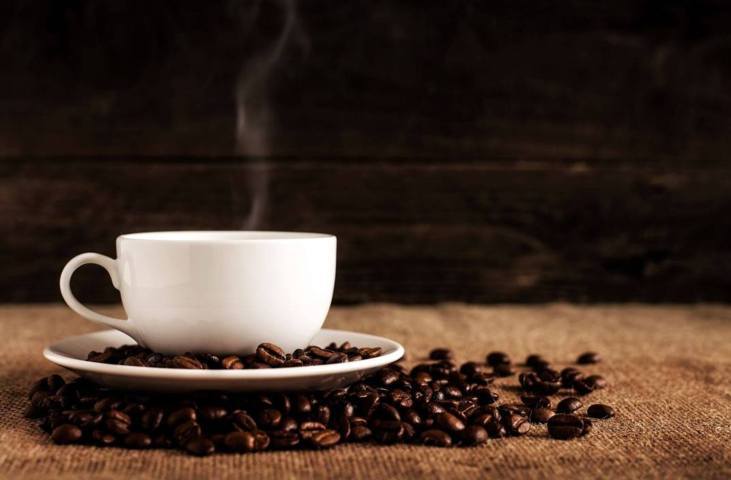If you've clicked on this post, chances are you have developed a dependency on coffee or are interested in healthier ways to stay awake without the caffeine. Either way, you've come to the right place. In this post, we answer all your caffeine-related questions and give you great alternatives to keep you healthy!
Why Do We Drink Coffee?
To learn why you should quit drinking coffee, we must first understand why people drink it in the first place. The prime reason is the amount of caffeine promised in each cup of coffee. Rising before the sun to tackle the day ahead is a feat most people can’t imagine doing without their morning cup of Joe. Caffeine is a stimulant that energizes us and keeps us alert when we need it most. With 94.8 milligrams in an 8-ounce cup of black coffee, it’s no wonder it’s the first thing many of us reach for in the morning to help kick start our day.
Another reason could be the social aspect of coffee and going to cafes. It’s so common to meet a friend or a colleague at a cafe to discuss and catch up over a cup of coffee that, even if you didn’t like coffee at first, you might have developed a taste for it by now.

The third and probably top reason for coffee drinking is addiction. The word ‘addiction’ may be laying it on a little strong, but caffeine’s addictive properties have many of us falling victim to drinking two, three and even four cups a day.
While this dependence is only considered mild, there are still withdrawal symptoms that may follow in the days after quitting coffee, like headaches, anxiety, and irritability. We don’t know about you, but, for us, that’s enough of a reason to look for healthier alternatives that bring all of the advantages without any of the setbacks.
So, Why Should You Quit Drinking Coffee?
Let’s look at the effects of too much caffeine on your body. The recommended limit for daily consumption of caffeine in adults is no more than 400 milligrams. It may seem like a lot, but that’s the amount of caffeine in 4 cups of coffee. It’s even easier to reach and surpass your recommended intake of caffeine if you incorporate foods and drinks like chocolate, energy drinks, tea, and even soft drinks into your daily diet. For many of us, a day doesn’t go by without ingesting at least one of these food items.
Even if this isn’t the case, you may be surprised to learn that there is caffeine in over-the-counter painkillers like Midol Menstrual Maximum Strength Caplets with 60 milligrams and Excedrin Migraine tablets with 65 milligrams.

What’s all this caffeine doing to your brain and body? Let’s see.
Bladder Problems
For one, excessive caffeine intake (anything more than 400 milligrams a day) may develop the risk of an oversensitive bladder in women. Even a mild caffeine intake can cause an increased likelihood for women with prior symptoms.
Doses of more than 250 milligrams of caffeine have been shown to cause jumps in blood pressure in persons regardless of their age, previous blood pressure status or prior caffeine habits.
Blood Sugar
When coffee becomes a staple in your diet, it can cause your body’s sensitivity to insulin to drop. Your cells become less capable of responding to your blood sugar levels, which can lead to higher levels of blood sugar.
Digestive Issues
Coffee is an acidic beverage which is bad news if you suffer from acid reflux and heartburn. Its acidic properties have also been shown to double the speed at which the GI tract moves, affecting the rate at which food is digested. A side effect of this can be abdominal pain or discomfort and increased bowel movements.
Increased Stress Levels
Caffeine intensifies your stress response by heightening your adrenaline levels, which in turn raises your blood pressure, induces sweating and brings about those dreaded jitters. Caffeine acts as a block for an important regulatory chemical, called adenosine, that makes sure our heart and lungs function the way they’re supposed to.
Now that we’ve established some of the ways over-caffeination affects our mental and physical health, let’s tackle ways to cut back or even break the habit.
Ways to Curb Coffee Addiction and Break the Habit
Breaking any habit is an uphill battle. The more dependent you are on a substance, the harder it is to let go of it. When it comes to coffee dependency, experts say to take it slow.
Weaning
Much like the way a mother weans her baby off of breastfeeding, it is suggested to follow a similar approach to weaning off of coffee. We suggest reducing your caffeine intake by an average of 20 mg daily until you zero out. This includes coffee and other caffeinated beverages like tea, energy drinks and soda.
The benefit of this method is that you gradually reduce your intake until you’re caffeine-free, so it comes without the withdrawal symptoms people often face when they decide to quit all at once.
Cold Turkey
While we don’t recommend this method, it is the fastest way to cut caffeine out of your system. However, as you would expect, it comes with the shock of suddenly denying your body its dependency. The consequence of quitting abruptly can be devastating, especially if your dependency was severe. Some people have even reported visiting the doctor with complaints of symptoms equivalent to illness.

If you choose this method, here are some of tips to help you through the withdrawal phase:
- Stock up on soups, broths and other easily digestible foods;
- Keep some painkillers nearby to prepare for the onset of headaches; and
- Try to plan your detox around the weekend so the worst of it will be over by the time the work-week begins.
Water
Hydration is a key component to any healthy lifestyle, but when you’re trying to rid yourself of a caffeine habit it’s best to pay close attention to your water drinking habits. We recommend 6-8 glasses of water a day. For a refreshing boost in the morning, add a squirt of lemon juice or a couple slices of lemon to a glass of warm water.
Best Healthy Alternatives to Coffee
If most of your caffeine intake comes from coffee, then it’s worth looking into healthy substitutes.
Luckily for you, we have compiled a comprehensive list of the best coffee substitutes, along with their health benefits and what makes them great.

Read on, coffee lovers! You just may find your newest fixation. But, this time, without the negative effects of too much caffeine.
1. Teeccino Herbal Coffee
Of all the herbal coffees, perhaps the most popular is Teeccino herbal coffee. Interestingly, Teeccino is neither a coffee nor a tea. It is advertised as a natural blend of caffeine-free ingredients like herbs, fruits, nuts, and roots, all ground down and brewed to taste like coffee. Since there is no caffeine, the energy boost you get from this drink is said to come from all of the nutrients it offers.
Also, this coffee replacement comes in 10 different flavors, like vanilla nut, mocha, and orange, to name a few.
Need we say more?
2. Postum Drink
This one is a perfect replacement if you just can't let go of that distinct coffee taste. It's a great contender as a caffeine-free option with ingredients like wheat, molasses, and wheat bran.
This instant powder mix was created and marketed as a healthy alternative to coffee back in 1895 and became quite popular for living up to its reputation. However, don't despair if you've never heard of this drink before. It was discontinued in 2007 due to low sales, but it's currently making a comeback.
Much like you would make instant coffee, just add the instant mix into hot water or hot milk as desired.
3. Cacao Husk Tea
This loose-leaf tea is a 100% natural option made from the dried outer shells of the cacao bean. It's brewed just like coffee and gives you mouth-watering flavors and aromas of chocolate and caramel. It's also full of excellent nutrients like B vitamins, iron, magnesium, calcium, and theobromine (which boasts benefits like better focus, better sleep, and low blood pressure).
Drinking cacao tea provides a delicate boost in energy and increased mental focus without the harsh effects of caffeine. Studies have shown that cacao husks have a high concentration of a theobromine, which is a valuable bioactive compound that helps keep the brain and heart active and stimulated.
Theobromine is a natural stimulant which is distinct from caffeine and has a gentle slow-release effect. Studies have found that patients consuming cacao rich in theobromine enjoyed increased brain stimulation, concentration and interest in study activities. Patients also experienced improved performance with mental tasks and reduced mental fatigue.
Best yet, cacao husk tea is calorie free!
4. Yerba Mate
Yerba mate is a caffeinated drink with less caffeine than coffee, but more than a cup of tea. Just like coffee, it can be a bit of an acquired taste. This herbal tea has earthy notes and is quite bitter, but carries none of the acidic tastes of coffee.
It's worth noting that its list of health benefits is long. It's full of antioxidants and nutrients, it may boost your immune system and protect against infections, and it's also said to aid in weight loss and can play a role in lowering your blood sugar levels.
5. Chicory Root
This is said to be a tea that tastes like coffee with some wood and nut undertones. This beverage is made from roasted ground chicory root and is brewed just like coffee. This tea is a great source of inulin, a prebiotic fiber that has been linked to improving digestive health and weight loss. It is also naturally caffeine-free, so it's a great coffee alternative.
However, this beverage may not be for everyone as studies have shown chicory root may cause complications for pregnant women.
Also worth noting is that inulin is a fiber that is digested quite quickly in the gut and, depending on your sensitivity, can lead to bloating and belly pain.
6. Dandelion Root
Dandelion root is similar to chicory root in that both have been used as coffee alternatives and can be grown and harvested in your own backyard.
Extra points for convenience!
This root is usually ground, roasted, and brewed in a similar fashion to chicory to get that coffee taste. However, it is less bitter and acidic.
It also has anti-inflammatory properties, potentially reduces cholesterol, boosts weight loss and carries liver cleansing properties which have been shown to lead to a better quality of sleep.
Takeaway
One great thing about these coffee alternatives, herbal coffees, and cacao husk tea is that they are concocted in a similar fashion to coffee and often come close in taste. They are (mostly) naturally caffeine-free, but their robust nutrient profiles promise a cocktail of amazing health benefits, including energy-boosting qualities.
All of that without the side effects and health concerns of caffeine. There's no shame or health consequences in going back for a second, third, or even fourth cup!
When it comes to taste, there is no end to the limitless combinations of flavors you can create. Add spices like cinnamon, turmeric, fennel seed, vanilla, etc.
Use creamers, dairy or nut milk. Even add honey. We're sure you have your secret fixes and special spices to add to the mix.
We hope that the thought of quitting caffeine for these healthy substitutes is now nowhere near as daunting as it may have been before you read this article!
Did You Enjoy This Article?
Thank you for reading! If you enjoyed this article, you might also like the following articles: Health Benefits of Cacao: The Complete Guide and Does Chocolate Have Caffeine?


Leave a comment: